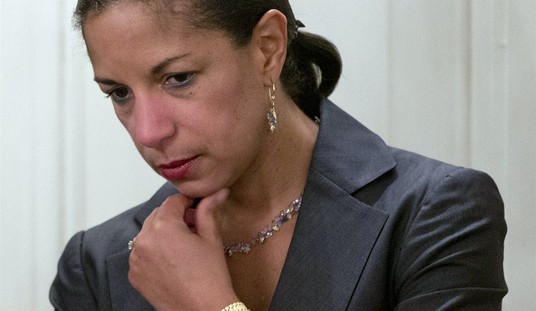There is a debate on whether to restore the filibuster for judges. I’m divided on the issue. Mike Hammond, who I respect a great deal, is in favor of it. I’m sympathetic to it because the goal is to protect conservatives from nominees like Harriet Meirs in the future. And, frankly, there are enough terrible Republicans to go along with Obama’s picks, we should probably make it more difficult to appoint them. Nonetheless, that position is in the minority compared to those below. I’m posting these at the request of several friends:
Memo from 26 Conservative Organizations and Leaders:
“Make no mistake, reviving the filibuster for nominations would significantly reduce, if not eliminate, the probability that the most qualified and most committed constitutionalists would be nominated or confirmed in a future Republican administration.”
“Bringing back the judicial filibuster would be more antiquarian and quixotic than restorative. . . .The 60-vote rule for legislation, thanks to its long history of use and the range of competing interests in the Senate, is likely to survive under either party. It does not owe its survival to the vitality of the judicial filibuster. There are a number of difficult questions that face next year’s Republican Senate majority. This is not one of them.”
The Editors, Wall Street Journal:
“Senate Republicans are debating whether to restore the 60-vote filibuster rule for confirming presidential nominees to the executive branch and lower courts. It’s nice to imagine a Kumbaya moment that would restore Senate comity, but this is a case when the GOP could do more political harm if it tries to undo [mc_name name=’Sen. Harry Reid (D-NV)’ chamber=’senate’ mcid=’R000146′ ] ’s damage.”
[mc_name name=’Sen. Orrin Hatch (R-UT)’ chamber=’senate’ mcid=’H000338′ ] and C. Boyden Gray:
“The Senate can and must be restored as a check on executive-branch overreach, a forum for true legislative debate and a bulwark for liberty. But unilateral disarmament on nominations would only invite further damage to the institution.”
[mc_name name=’Sen. Ted Cruz (R-TX)’ chamber=’senate’ mcid=’C001098′ ]:
“I don’t think it makes any sense for us to go back, because what will happen if we do that, is it becomes a one-way ratchet. It becomes, there’s a 60 vote threshold for confirming Republican nominees, and a 50 vote threshold for confirming Democratic nominees. And it doesn’t make any sense. The rules need to be the same for both parties.”
Robert Romano, Americans for Limited Government:
“As abominable as Reid’s actions against Senate rules were, what sort of standard would we have where one party is required to meet a 60-vote threshold for nominees but not the other? In fact, should Republicans choose to go back to the old 60-vote threshold, they would be rewarding Democrat lawlessness which has changed the face of the influential D.C. Circuit Court of Appeals.”
“It is my contention that if we are going to have fidelity to the constitution then we should not put it [the judicial filibuster] back in place because it violates the constitution.”
“The only real prospect for much-needed improvement in the federal courts requires a good Republican president and a Senate Republican majority that can exercise its majority power to confirm good nominees. It would be a massive folly for Senate Republicans to deprive themselves of that power.”
“If Republican senators actually try to “denuclearize” the judicial-nomination process — meaning they would undo the “nuclear option” Reid put in place in 2013 and would once again require 60 votes to break a filibuster against judicial nominees — they will catalyze one of the biggest, most brutal civil wars the right-of-center coalition has seen in the past decade. Reinstating the filibuster for judicial nominations is a bad idea on the merits and, on multiple levels, astoundingly foolish on the politics.”
“In a nutshell, with Democrats having twice now demonstrated their unwillingness to “play by the rules”—whatever they may be—it’s no time for Republicans to unilaterally disarm, as Hatch and Gray put it. You don’t have to be a partisan to understand that.”
“The filibuster of judicial nominations was a terrible idea when Senate Democrats started it, and it remains a terrible idea today.”
“The filibuster is dead, and good riddance to it.”
“I’ve never seen such unity amongst libertarian and conservative legal thinkers and political activists as I’ve seen on this issue.”
“No, no, no, no, no to the idea moving around some Senate GOP circles of ‘restoring’ the judicial filibuster.
First, the GOP senators have to understand that this is not simply an internal matter, a question of the “club’s” agreed-upon rules. It is an issue of incredible and obvious importance to all Americans, not just 100 senators, and understood to be such by millions of grassroots voters, and thousands of contributors.”













Join the conversation as a VIP Member